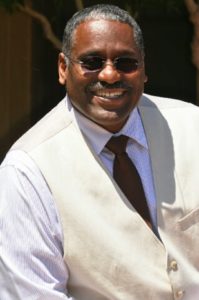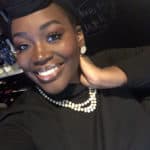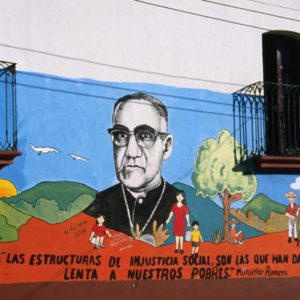“Now faith is the substance of things hoped for, the evidence of things not seen.” Hope is something that I struggle to maintain, especially as a Black woman living within the many intersections of oppression in America.
I have watched police execute men, women, and children that looked like me. I have watched an overtly racist and xenophobic President win an election and catalyze a country into a comfort with hate speech.
I have watched Americans become so comfortable and encouraged by their hate that they stormed and took siege of the United States capital. It is this present reality that has often robbed me of my hope in America, in this system.
 And then I met Dr. Stephen Morris. Dr. Morris has spent 20 years in public education, working his way up from a teacher all the way to becoming a superintendent, in charter, public, and private schools. He served as the Vice President for World Impact, Inc. and co-founded a private school in South Central Los Angeles that centered the experiences of under-resourced urban children. Dr. Morris is Co-Founder/CEO of the Civic Education Center, Inc.
And then I met Dr. Stephen Morris. Dr. Morris has spent 20 years in public education, working his way up from a teacher all the way to becoming a superintendent, in charter, public, and private schools. He served as the Vice President for World Impact, Inc. and co-founded a private school in South Central Los Angeles that centered the experiences of under-resourced urban children. Dr. Morris is Co-Founder/CEO of the Civic Education Center, Inc.
As we chatted, my defenses came down. Dr. Morris was a gentle and kind presence. With ease and confidence, he spent an hour conveying to me the ways in which democracy can evoke justice and thus, holiness. He shared historical facts and personal stories with me. We exchanged laughs and listened deeply. As a proponent of intergenerational work in order to create a more just and inclusive society, I can absolutely say that this was my richest intergenerational conversation yet. Enjoy the below conversation.
—–
Bethany: I’d love to hear you articulate who you are.
Dr. Morris: I describe myself as someone on a journey to discover and understand God’s love in the context of who I am. My heritage, ethnicity, class, and status as a father and grandfather and as a husband. I try to put together those pieces and live in a way that honors those unique intersections of who I am in the midst of knowing that God accepts all of them—the pieces and the total.
Bethany: Let’s get into the work that you’re doing. When did you start?
Dr. Morris: It started when I worked as a missionary in urban America after I graduated from a Mennonite college and an Anabaptist background. I had a chance to play pro football or go into the ministry as a missionary. I was weighing it back and forth. At that time, there was a crazy book out called Meat on the Hookthat looked at professional players like a side of beef. The book included the injuries [from] that lifestyle.
Back then, football was still operating under this fake science that Black people can endure more injuries and that their bodies are tougher. Well, I became a missionary in As a missionary in South Central LA, working with gang bangers and prostitutes and drug dealers. There was not one person who did not want a better life for their children.
We found common ground with their children. What hope do you have for your child? How do you want them to be different? What do you want the world to be like for them so they can be more successful? That was across the board, so I helped create some Christian schools that focused on that and we tried to expand the model into Philadelphia and Newark, N.J. We wanted to take people where they were at and not judge them.
When I moved to Fresno, I ended up retiring from the ministry and getting into public schools and doing the same thing. I became a 6th grade teacher and loved it. Again, it allowed me to reinforce people where they were at. I became a vice principal, a principal ,and then a superintendent.
Bethany: That must’ve been very different from mission work. What did you see in that work?
Dr. Morris: When I got my Doctorate and wrote my dissertation, I was really looking at educational structures and segregation and how we build the whole child in the midst of that. It changed my outlook. What could I talk about in public schools? I could talk about America and about the government. But what about those things would bring a connection to someone, their spirit or their being, and to make that person want to change? That mission became my calling.
The center was created in 2016 with the intention of providing training for educators working with students to identify community problems, engage with American civic values and ideals, conduct research to understand causes and potential solutions, and implement a civic service project.
Bethany: This is a very interesting conversation for me because I am a rebellious millennial who doesn’t believe in institutions and who is constantly frustrated with America. It’s so interesting to hear you talk about America from a very hopeful place. How do you keep hope alive in this present climate?
Dr. Morris: I think I do this because my generation fought for stuff. I couldn’t swim in a public pool until I was 12 years old. We swam in creeks and ponds, and the first time that President Johnson signed the Civil Rights Bill we went to the “All White” pool. The White people got out because they were afraid of contamination. But we didn’t care! We stayed in the pool all day and there was nothing they could do about it!
So within a week, the White people were getting in the pool with us one at a time and they saw that nothing happened. Their skin didn’t change color and they didn’t get some weird disease. So more of them started getting in the pool with us! We fought to be able to get into a public swimming pool, to go to a school that was fully equipped, to go into a movie theater, and not to have to sit in the balcony. We fought to not just be locked into one area to live but to have access to everywhere.
And we saw some changes happen! Those changes weren’t always as internal as you would hope, but that came later. But there was change!
Bethany: What do you hope younger generations get to see and experience in this democracy and from your work?
Dr. Morris: The hope we have is the very thing that your generation (Millennials) will fight for. As bombastic as Trump is, we have a way of getting him out of office! Now, unfortunately, it got crazy because his supporters stormed the Capitol.
That’s not what it’s supposed to be. I mean they claim democracy, but they’re in there waving Confederate flags and attacking. No, you don’t really understand democracy. What you understand is something that continues to support your privileged lifestyle. And that’s what we continue to fight.
Many of today’s democratic societies are driven by self-protectionism, not the “invisible hand,” as proscribed by Adam Smith, the father of Western economic and social growth. Smith believed that human beings are driven by passion, reason, and empathy for others. In my opinion, this empathy for others becomes the invisible that allows individuals and free societies to prosper and ensures the goodwill or the common good of all.
From my perspective, American Democracy is limited by a ten percent mentality, implying that once the ten percent margin is reached, further responsibility to society or our fellow human beings is no longer necessary. We see so much selfishness in American Democracy, so much so that we fail to acknowledge the Devine. The invisible hand drives Christianity, that of an Omnipotent gracious God who gave abundantly more than ten percent to redeem us.
I do not believe God favors one form of government or another, but I do believe that in a democratic society characterized by individual freedom and responsibility, we are afforded greater opportunity to live in a manner that goes beyond the ten percent. We can move beyond privileged lifestyles and class-structured societies to ensure all access to life, liberty, and the pursuit of happiness or contentment.
Bethany: So what is democracy to you? How can it work together with faith?
Dr. Morris: Democracy is the opportunity to ensure government reflects the values of our God, who created all to possess an inherited worth. In the story of Creation, human beings come to life when God breathes the breath of life into our lungs.
Democracy means ”people rule”; therefore, we have a moral, if not a sacred, responsibility to all to ensure all live in a society where all may have the opportunity to live out our faith in such a manner that honors our responsibility to one another.
Bethany: What do you want students to learn from you?
Dr. Morris: I want them to come away knowing that we all have a responsibility, a shared role, and those shared roles are based on values that are greater than mankind—or any individual. I want people to understand that those values are greater than all of us, and that’s what gives us common ground to perfect the Union, to talk about gender identity, to talk about poverty, to talk about immigration.
If we start from the point of view that everyone is born in the image of God, then we want everyone to be maximized in the image of God.
 Bethany Stewart is an HBCU graduate living in what she describes as the perfect city, Philadelphia, PA. She works as an Education and Employment Specialist for formerly homeless young adults while also working as a community organizer focused on ending mass incarceration. She enjoys the beauty of God’s creation in nature and has been known to set it off if one begins making up “house rules” during a game of Uno.
Bethany Stewart is an HBCU graduate living in what she describes as the perfect city, Philadelphia, PA. She works as an Education and Employment Specialist for formerly homeless young adults while also working as a community organizer focused on ending mass incarceration. She enjoys the beauty of God’s creation in nature and has been known to set it off if one begins making up “house rules” during a game of Uno.


